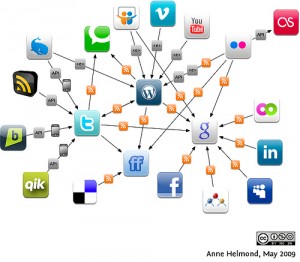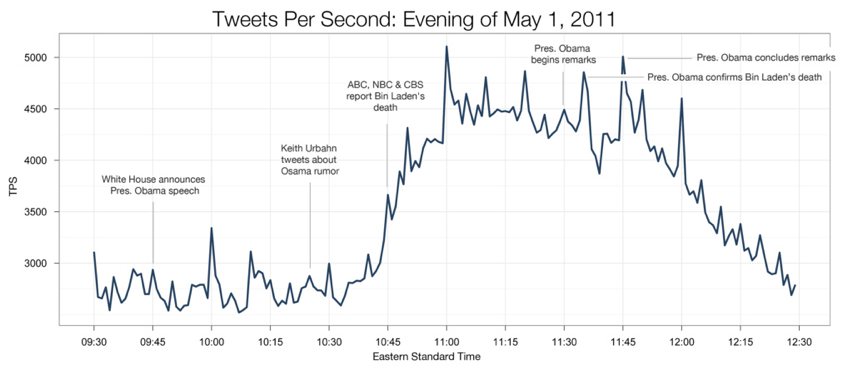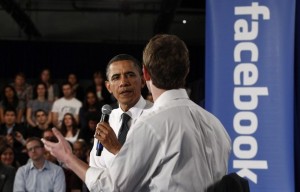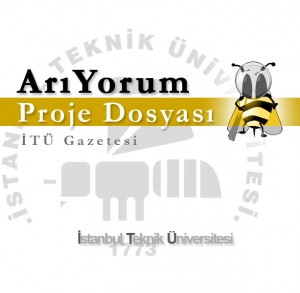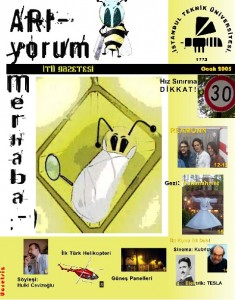Just like many of you, I didn’t hear the news that Osama Bin Laden was killed from a TV channel, nor a news agency, nor an official institution, but Tweets bursting out from Twitter, Facebook/MSN IM networks, simply put from friends in a “on the grapevine” fashion and within a time frame of about 3 hours after the first public source.
We are observing the evolution of journalism. Actually, I realize that I haven’t read a paper published newspaper for so long that I’m missing the joy of a journey between the pages of a newspaper on a sunday morning.
Lets check the numbers first… According to Twitter’s official announcement, tweets about Laden’s death broke the Sustained Tweet Rate record and reached 3000 tweets per second over 10:45pm – 2:20am period. After USA president Obama’s speech it tweet rates reached 5008 tweets per second. This rate can reach the average daily visits of New York Times online (~30million) in about 3 hours. The exponential spread and later the damping of the tweet rate can be noticed by the tsunami like shape in the figure. This quantitative growth raises qualitative concerns, as it is commonly seen that false news go viral on twitter, but 3000 tweets per second is a significant rate.
If we approach this emerging trend from the consumer behavior perspective, we consume “news” much like other goods, there are many analogies. After the industrial revolution, the era of mass production emerged, profit by mass production & sales of a single product. When Ford manufactured his first cars, the consumers didn’t used to have too many options, just like everybody used to read the same newspapers and watch the same tv channels in the early years of the media.
As the technical improvements evolved, and new production methods emerged, there was a paradigm shift in late 90’s to mass customization. To be honest, we are extremely spoiled. If we think of today’s extreme, you can buy your iPhone/iPad with the configuration you want and with your name laser-written on the back (Henry Ford would probably drown in tears, if he would experience this).
This nature of ours is apparent in all types of consumption. We want to have our own choices. When we read news, we want to compile our own configuration with the authors we prefer, fuse the knowledge we want to synthesize through RSS channels, and consume it through the interface we prefer. Products for mass audiences simply don’t make the cut. Especially if news is considered, the time lag of conventional methods results in old news once it reaches to the customers. When establishing our corporate and personal identities, we cannot neglect these changes.
The digital world is by-passing the intermediaries and makes us come one more step closer to the source of everything, while a new era is shaping in front of our eyes.
– this post has been published in dijitolog
